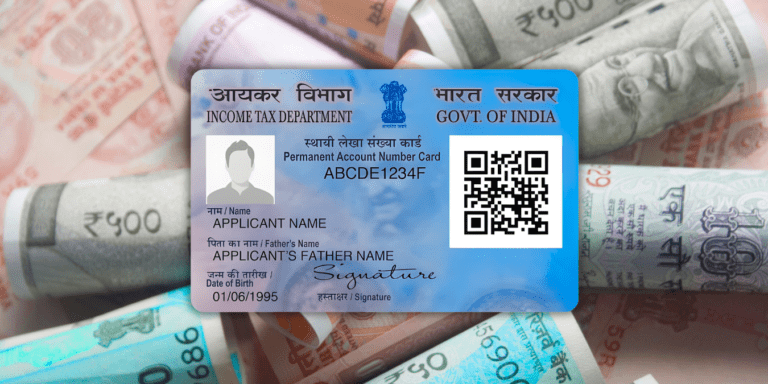
Tax Evasion vs Tax Planning vs Tax Avoidance: The Thin Line You Must Know Before It's Too Late
Think you know tax-saving? In 2025 India, the line between smart tax planning and illegal evasion is razor-thin. One wrong move could trigger penalties or prosecution. Discover the hidden risks, ethical battles, and must-know strategies to protect your wealth and stay safe in the digital tax era.
The Shocking Question Nobody’s Asking About Your Taxes Today
Imagine this: You file your taxes thinking you’ve done everything right—claimed deductions, invested smartly, maybe even arranged your affairs to pay less tax. Yet, a year later, you receive a notice that could lead to penalties, legal scrutiny, or worse—prosecution. How? Because the line between tax planning, tax avoidance, and tax evasion is razor-thin now in India—and crossing it is easier than you think. What separates safe tax saving from criminal tax evasion? The answer will surprise you—and it’s vital for every Indian to understand in 2025.
Why This Matters Now More Than Ever: The Digital Tax Surveillance Era
The Indian tax system has undergone a seismic transformation. Gone are the days when tax authorities had limited data or relied heavily on physical audits. Today, the government uses cutting-edge technology that merges multiple streams of financial data:
- Annual Information Statement (AIS) and Tax Information Summary (TIS) collect comprehensive third-party financial details.
- Advanced GST data matching compares indirect tax filings with income disclosures.
- PAN and Aadhaar linking provide near real-time tracking of transactions.
- Faceless Assessment Scheme uses AI and data analytics for automated, remote scrutiny without human bias.
This digital integration means every financial move you make, every investment or purchase above certain limits, every claim for deductions, is under microscopic observation. The consequence? One tiny misstep between the spirit and letter of tax law could trigger severe penalties or even criminal action.
What Separates Tax Planning, Avoidance, and Evasion? Decoding the Legal and Ethical Lines
Tax Planning: Your Legal Toolkit for Smart Tax Saving
Tax planning is the legitimate, government-endorsed practice of utilizing legal provisions to reduce tax liabilities. It is encouraged as a responsible financial habit.
- Examples include investing under Section 80C (PF, ELSS, insurance), claiming House Rent Allowance (HRA), claiming home loan interest deductions, creating a Hindu Undivided Family (HUF) entity, or investing capital gains in specified assets under Sections 54/54F.
- Tax planning respects both the letter and the spirit of the law, taking advantage of allowed exemptions without misrepresenting facts.
- It’s safe, transparent, and comes with peace of mind: no fear of future penalties or legal action.
Tax Avoidance: The Grey Zone That’s Legal—but Risky and Unethical
Tax avoidance sits in a murky, ethically grey zone. It involves exploiting loopholes in tax laws to reduce your tax within the letter of the law but against its intent. While technically legal, it may invite legal challenges, social disapproval, and future amendments plugging loopholes.
- Examples include routing income through tax havens, creating artificial losses, misusing exemption clauses, or structuring complicated corporate entities to shift income artificially.
- India’s tax watchdogs use tools like General Anti-Avoidance Rules (GAAR) and Specific Anti-Avoidance Rules (SAAR) to challenge aggressive tax avoidance.
- Avoidance practices are under increasing scrutiny with AI-powered faceless assessments and data analytics, raising the risk of reassessment or penal action.
- Key takeaway: Tax avoidance is a gamble. It might save you tax today, but it can backfire badly, even years later.
Tax Evasion: The Criminal Line You Must Never Cross
Tax evasion is deliberate fraud—hiding income, inflating expenses, or submitting fake documents to avoid paying tax. This is outright illegal and leads to prosecution, fines, and imprisonment.
- Common evasion tactics include unreported cash sales, bogus purchase bills, fake invoices, under-reporting sales turnover, or benami property transactions.
- The law takes a hard stance: With the government’s intensified efforts, tax evasion cases often end in raids, arrests, and blacklisting.
- Modern tech tools like AIS, GST matching, and international cooperation expose evaders quicker than ever.
- The bottom line: Hide income → Jail time. No exceptions.
Surprising Realities and Hidden Details Every Indian Taxpayer Should Know
1. The Legal Line Is Blurring Fast - Beware GAAR and SAAR
The introduction of GAAR in India (effective since April 2017 and further strengthened in 2025) gives tax authorities sweeping powers to recharacterize transactions designed primarily to obtain tax benefits without genuine commercial substance.
- GAAR applies if tax benefit exceeds ₹3 crores in a year.
- SAAR targets specific abusive schemes like dividend stripping or transfer pricing manipulation.
- Taxpayers must demonstrate legitimate business rationale to defend against GAAR.
- The government can deny tax benefits retroactively, leading to large additional tax demands plus penalties.
2. Faceless Assessments Are Changing the Game—No More Human Interface
By removing physical meetings with tax officers and relying on digital portals, faceless assessments increase transparency but also reduce taxpayer leeway.
- Notices under Section 143(2) are issued electronically.
- You must submit clarifications, documents online within tight deadlines.
- Decisions are based on data analytics and AI, increasing detection of suspicious patterns.
- The system targets recurring large-value mismatches, intelligence-based flags, and aggressive tax planning cases.
3. AIS and TIS Data Tracking Make Honest Mistakes Costly
AIS integrates data from multiple sources: banks, property registries, mutual funds, employers, stock exchanges, and more.
- Any mismatch between AIS and income tax return (ITR) data can trigger automatic compliance checks.
- Stock market investors, traders, and real estate buyers must be extra vigilant.
- Tax authorities increasingly penalize taxpayers for ignoring high-value AIS mismatches.
How to Protect Yourself in 2025: Power Moves for Every Indian Taxpayer
Embrace Smart Tax Planning
- Invest in prescribed tax-saving instruments under Section 80C—PF, PPF, ELSS, life insurance.
- Claim eligible HRA and home loan principal and interest deductions.
- Utilize capital gains exemptions by reinvesting in specified assets.
- Consider creating an HUF structure if applicable to optimize tax.
Avoid Aggressive Avoidance Schemes
- Be cautious about complex corporate structures just to shift income.
- Avoid transactions that appear artificial or lack genuine commercial purpose.
- Stay updated on GAAR and SAAR provisions to ensure compliance.
Maintain Perfect Documentation and Transparency
- Keep detailed records of all income, investments, and expenses.
- Reconcile broker statements, property transactions, and AIS reports with returns meticulously.
- Respond promptly to any faceless assessment or discrepancy notice.
Seek Expert Help When in Doubt
- Tax laws are complex and rapidly evolving—consult tax professionals for high-value or complex transactions.
- Use digital tools and platforms that help cross-check returns with AIS data automatically.
Your Peace of Mind and Financial Future Depend on It
- Imagine the relief of knowing your tax filings are spotless, saving every rupee legally without fear of penalty.
- Think about the aspiration of growing wealth with smart, lawful tax planning rather than risky avoidance.
- The urgency to act is now: tax authorities are more empowered than ever, and ignorance or careless filing can cause devastating financial and legal consequences.
What Lies Ahead: The Future of Tax Compliance in India You Must Prepare For
- The new Direct Tax Code (DTC) coming into effect from April 2026 promises a simplified, transparent tax structure but with tighter compliance measures.
- Increased AI and machine learning adoption will magnify detection of subtle tax avoidance and evasion schemes.
- Global tax information sharing agreements will tighten loopholes on offshore evasion.
- Getting ahead with legal tax planning, staying updated on compliance, and using tech-enabled audit tools are essential.
- Those who do will thrive; those who ignore risks may face the harsh new reality of India’s digital tax enforcement revolution.































